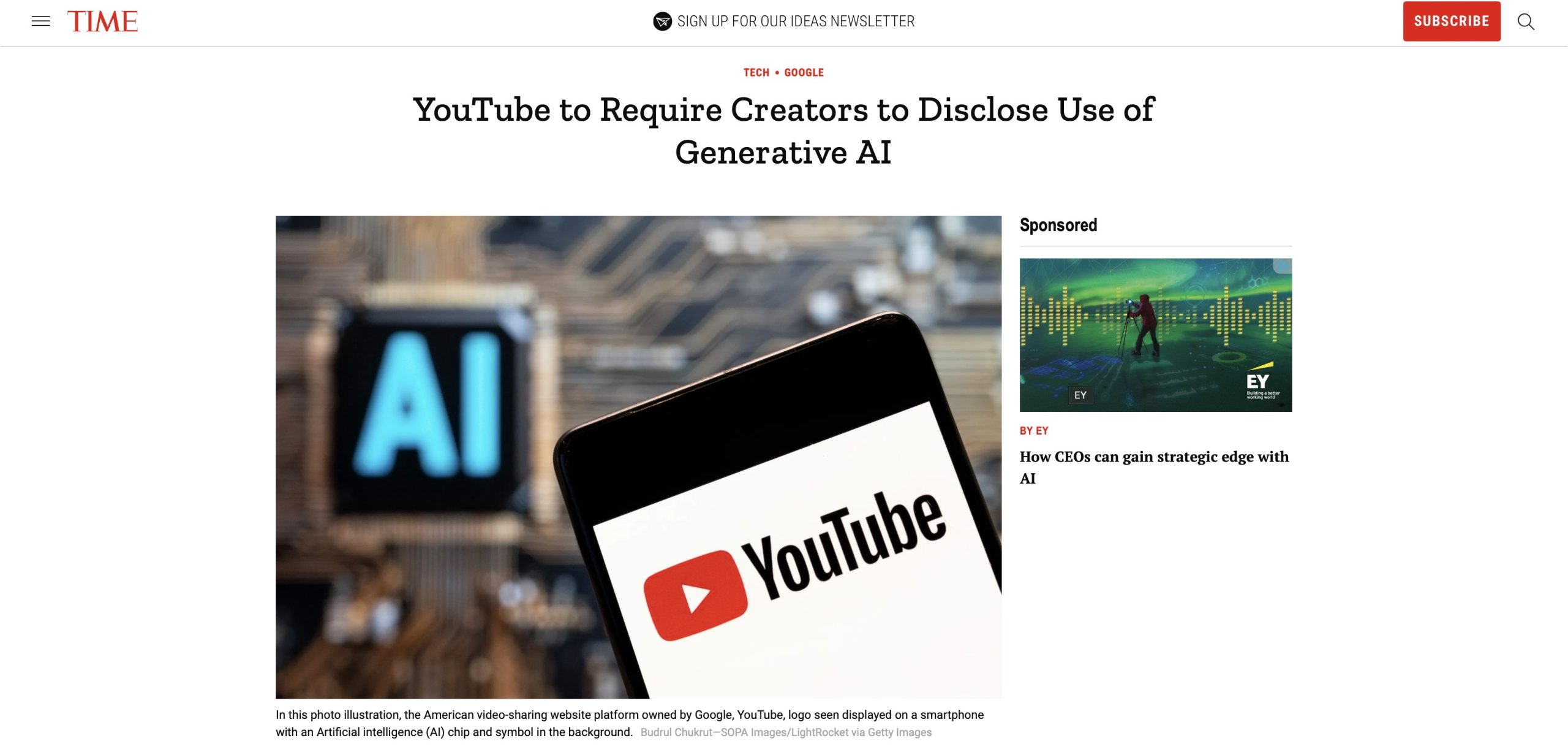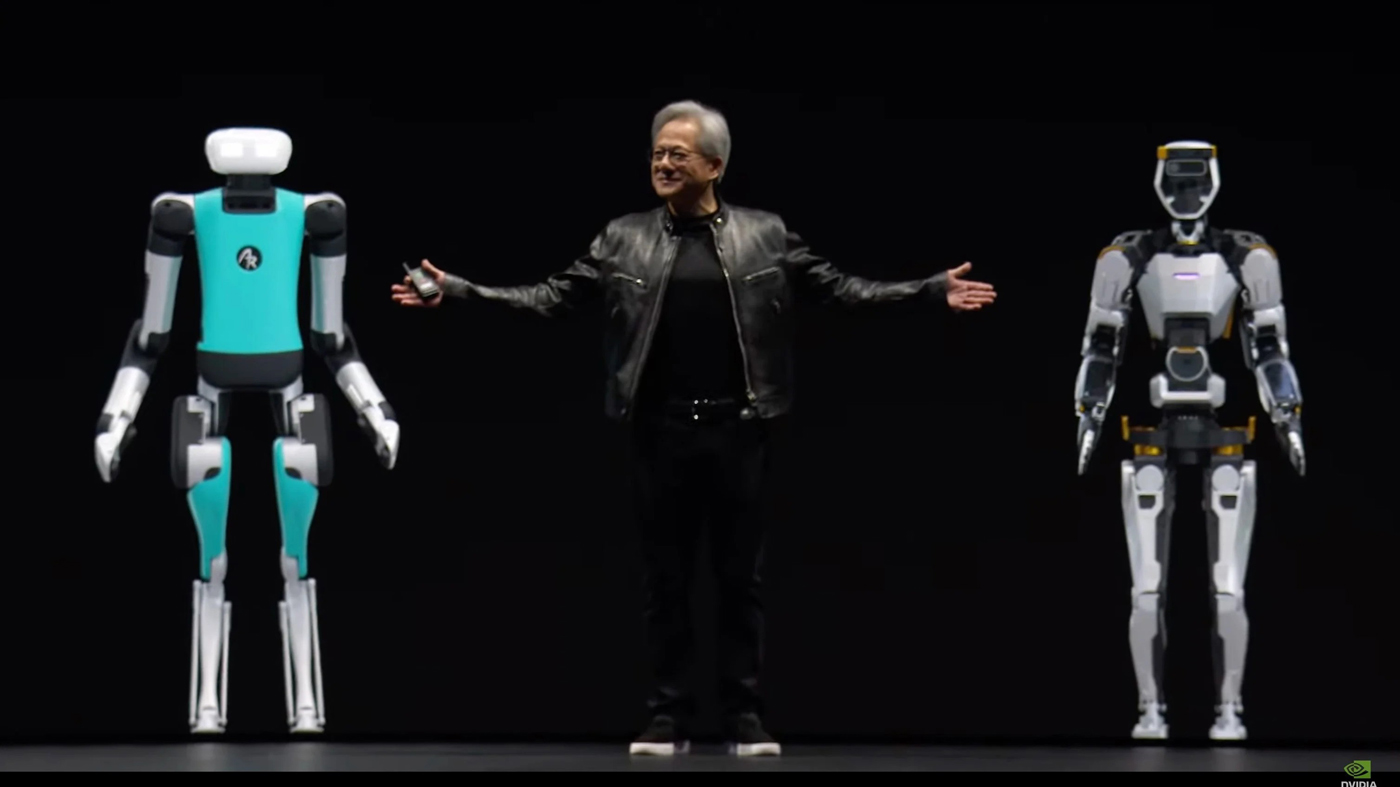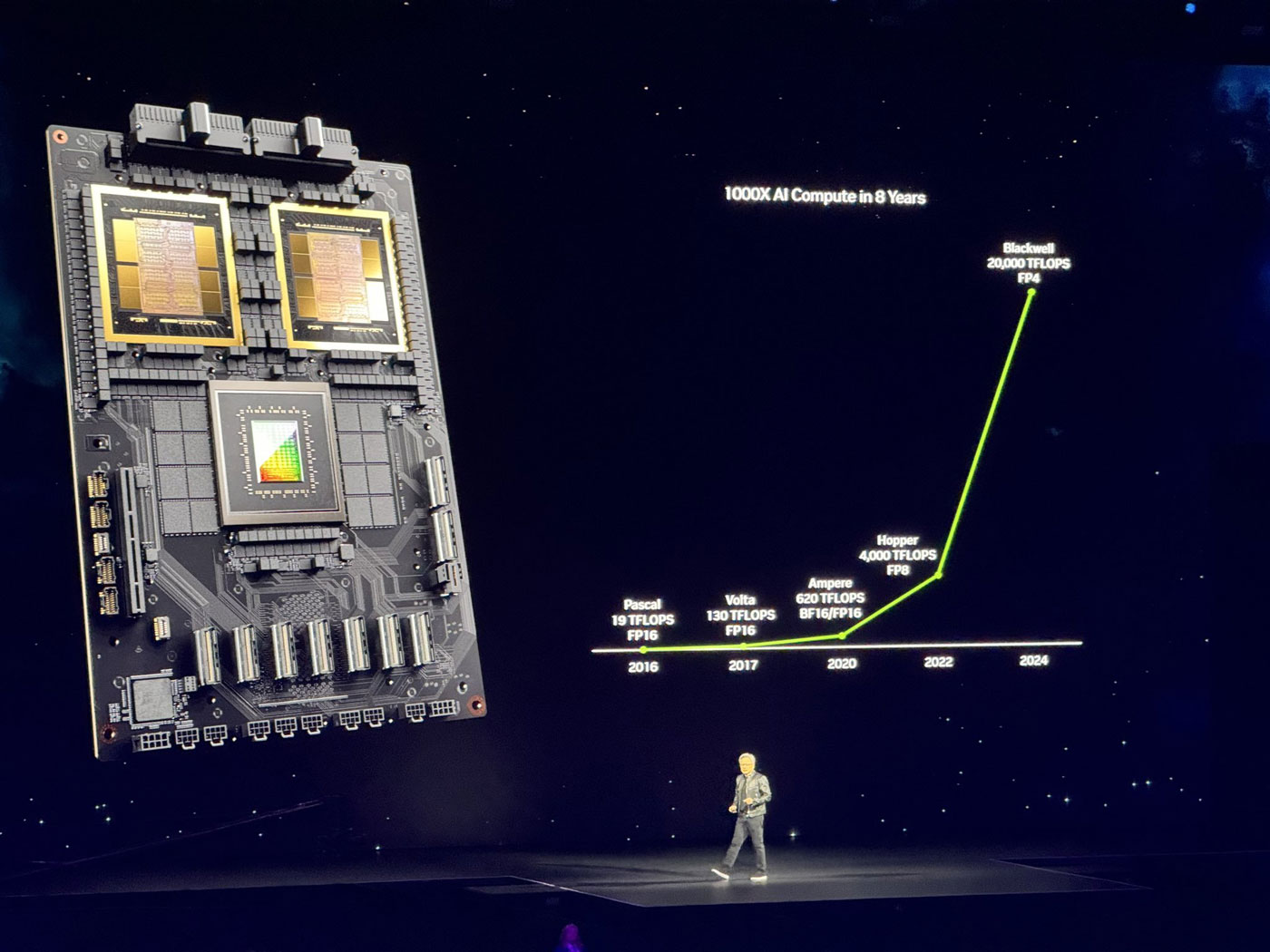YouTube will require creators to disclose if content is AI generated
The line between reality and fabrication just got a bold new boundary on YouTube. In a move designed to combat misinformation and foster transparency, the video-sharing giant is rolling out a new policy requiring creators to disclose when content is artificially generated.
This applies to videos that leverage generative AI, a powerful technology capable of creating realistic-looking footage, voices, and environments. Imagine a documentary where historical figures are brought to life through AI-powered reenactments, or a news report narrated by a computer-synthesized voice that sounds eerily human. Under the new guidelines, creators crafting such content will be obligated to inform viewers that they’re not watching the real deal.
“The aim is to empower viewers with knowledge,” says a YouTube spokesperson. “By highlighting the use of AI, we can foster trust and transparency within the YouTube community.”
The disclosure will appear in the video description for most content. However, for videos tackling sensitive topics like health, elections, or finance, a more prominent label will be displayed directly on the video player itself. This ensures viewers encountering potentially misleading information have it flagged upfront.
Not all AI usage requires a disclaimer. Creators using AI for stylistic flourishes or in clearly fantastical settings (think a dragon soaring through a cartoon landscape) are exempt. AI employed for behind-the-scenes tasks like generating captions or scripts doesn’t necessitate disclosure.
This policy signifies a crucial step towards navigating the complexities of AI-generated content. As AI technology continues to evolve, the potential for misuse becomes a growing concern. Deepfakes, for instance, have already been used to create fake news videos that could sway public opinion. By requiring disclosure, YouTube hopes to mitigate the spread of misinformation and educate viewers on the fabricated nature of certain content.
The policy is likely to spark debate among creators. While transparency advocates will laud the move, some creators might find the disclosure cumbersome or worry it might impact viewership. Nevertheless, YouTube’s decision reflects a growing awareness of the potential pitfalls of AI and a commitment to responsible content creation within its platform.




